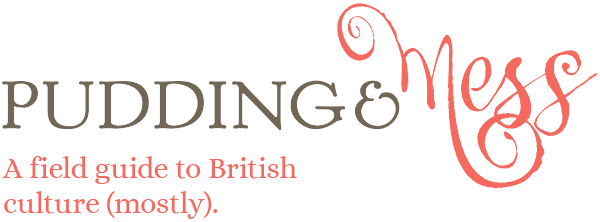~A Place For Us Fatima Farheen Mirza Finally, a book that checked all my boxes for a fabulous read. And what an astonishing debut novel. It’s a book about family and the myriad betrayals, misconceptions and misunderstandings that take place over the years and fracture the whole into little pieces. It starts at the wedding of Hadia, the eldest daughter of Rafiq and Layla and older sister to Huda and Amar. Amar has returned for his sister’s nuptials after abruptly leaving the family three years prior. From here the book does what I love above all else…meanders slowly back and forth telling the story of an ordinary family trying to find their way, focusing on the mundane and everyday details of life that have a huge impact on the things we do and the choices we make. This is an Indian Muslim family living in California (frequently I would forget that we weren’t actually in India) so there is some focus on the clash of cultures, particularly with Hadia refusing an arranged marriage, but it wasn’t an overwhelming part of the book. This is mostly about family relationships…mother/daughter, father/son, siblings…the struggles and differences which affect them all. But the lynchpin is Amar, the youngest most difficult child who in turn puzzles and charms them all with his choices and rebelliousness, the one who out of all of them, chafes against his religion. It’a a powerful, gorgeously written book, quiet and gentle, deeply intuitive and as Ms. Mirza weaves her story she gives us a new look at certain incidences from a new perspective, highlighting so clearly how we all come into situations with our own unique point of view.
~The Great Alone Kristin Hannah When her Vietnam POW surviving father unexpectedly inherits a house in Alaska from a war time friend, thirteen year old Leni, along with her mother, end up uprooting their lives and heading north. Once there it quickly becomes apparent that Alaska, the Great Alone, is a force to be reckoned with. Thanks to many wonderful members of a small community in a tiny remote town, the three prepare for their first winter. The first two hundred pages or so of the book focus on their adjustment, the people they meet and the crazy way of life they have to adapt themselves to. This was, by far, my favourite thing about the book: learning about Alaska in all of its cruel, majestic grandeur. It sounds breathtaking despite the harshness and Leni soon falls in love with her new life. But as the dark settles in for the winter, Leni’s father’s mental state begins to deteriorate and things go awry. This is a big, deep novel that tells a good story really well. It’s one of those books that you pick up and have trouble leaving alone until you’ve reached the final page. Despite this, however, I do have one issue. And it’s a fairly big one. Characters aren’t terribly multi-faceted. Leni doesn’t really change from beginning to end despite one hell of a journey and her mother makes you want to slap her on more than one occasion. Good people are good, bad people are bad. Period. It’s the exact same problem I remember with Hannah’s previous novel, The Nightingale which went on to become something of a cult classic in the WWII fiction genre. What Ms. Hannah seems to be a master at, is the creation of a setting, which plays big and loud in both of her books. In The Nightingale, the backdrop is of the war and the resistance. In this book it is the wild and rugged grandeur of Alaska. In both cases the setting is well-researched, deep and powerful, rendering it the most interesting character in each book by far.
~White Houses Amy Bloom Given my love of historical fiction, especially books revolving around real people or incidents, this one seemed like a no brainer to read. Reviews were great and I thought it would be fun to read about Eleanor Roosevelt, about whom I know very little. Unfortunately this one gets a big thumbs down from me…in fact about two thirds of the way threw I finally threw in the towel. I have never read anything by Amy Bloom before, so I have nothing to compare this to, although I do understand her to be an excellent writer. Indeed, there’s nothing particularly wrong with the writing but my biggest grievance was this: I thought this was going to be a love story yet it is devoid of passion. Ms Bloom’s breezy, fast paced writing style moved so quickly that things tended to be glossed over. Consequently, it felt hard to make connections with the main characters. Also, the book jumps around…a lot…from 1945 shortly after FDR has died, to the past. And while I don’t usually have a problem with this, here it was jarring and made the book feel disjointed. Overall this felt remote and tepid to me.
~The Widows of Malabar Hill Sujata Massey All I knew about this book going in was that it’s set in India, which is all the push I need, really. Turns out it’s the first in what’s going to be a series about Indian solicitor Perveen Mistry in 1920’s Bombay. Apparently I can stumble upon an historical murder mystery series without even trying…and it may not be English but 1920’s India is pretty darn close. The main character Perveen, is based on a real life person, Cornelia Sorabj, the first woman to read law at Oxford and India’s first female solicitor. Much of the book deals with Perveen’s back story of an ill-fated marriage and how it affects her. In the present day she works for her esteemed barrister father, Jamshedi, preparing legal briefs and reviewing contracts and wills, although she is unable to be admitted to the bar, despite her wealth and education…being a girl and all that. During her work she comes across a document relating to the will of a man who has just died and whose three widows live in seclusion, which basically means that they refuse to have any contact with men. Perveen of course, is uniquly able to handle the task of speaking to the women and so goes to their Malabar Hill estate…where there’s a murder. As a whole the book is a bit slow to get going with parts that felt just a wee bit trite. But…clearly Ms. Massey is setting the scene for future books. And what I did love about it was the fascinating look at the divisions within the religious groups of India and the customs and culture of Bombay in the twenties. I’ll be picking up the next one for sure.
~What We Were Promised Lucy Tan After 15 years of living in the US, Wei, Lina Zhen and their daughter Karen return to Shanghai at which point Qiang, Wei’s long lost brother, gets in touch after a decades long disappearance. The book hops back and forth in time telling the story of when Wei and Lina met (theirs was an arranged marriage) and the part that Qiang plays in it all. There’s a subplot involving Sunny, the Zhen’s housekeeper, and a missing bracelet which felt a bit superfluous to me although I enjoyed Sunny’s story. I enjoyed the books themes…promises made and broken, responsibility to family which played nicely against the American concept of individuality. For anyone who’s lived life as an expat it’s easy to appreciate the displacement the Zhen family feels upon returning home, feeling as though they no longer fit into either culture, sharpened by the fact that their 15 year old daughter is a full on American teenager. I also loved learning about all the cultural differences, but ultimately I struggled with this book. The tension that should have been there was lacking for me, in part, I think, because I really struggled to care about the characters, especially Lina. At times the story engaged me at others my attention wandered. Not awful, just not great.
~Convenience Store Woman Sayaka Murata Well what a quirky little rice ball of a book this is. A bit stark and garish like the store it is set in but with a veil of deadpan humour that prevents the rather flat prose from becoming too chilly. Keiko Furukura has always been a bit of an oddball. There’s a childhood incident where she ends a playground fight by hitting a child over the head with a spade (and is puzzled when the teachers berate her) and as an adult, looking on at her sister’s crying baby, she eyes a knife over on the table and wonders if it might be the needed solution, which does rather leave you wondering exactly how odd Keiko is. At 18, much to her family’s relief, Keiko takes a job at the Smile Mart convenience store, which she finds suits her needs perfectly. Unfortunately, 18 years later her family worries that she is still there. Indeed, Keiko finds herself regularly trying to defend her position as a 36 year old unmarried woman in a dead end job. But Keiko has always struggled to fit in, enlisting her sister to help her with the correct responses to the questions and problems people and life throw at her. Her job makes her feel like “a normal cog in society.” It’s a short book, readable in an afternoon, oddly satisfying in its strangeness and one that ultimately ponders the age old question of what is normal and who exactly gets to be the arbiter of what that means.
~The Perfect Nanny Leila Slimani The original title for this book in France was Lullaby and I’m sure it had a very different cover than the American version. On the back cover it is referred to as the French Gone Girl and as a “gripping psychological thriller”. I would not describe it so at all and quite frankly I think that that’s a bit (a lot) misleading. The opening line is “The baby is dead. It took only a few seconds. The doctor said he didn’t suffer.” So no big surprises about the outcome of the book. But instead of a psychological thriller, what I found was an unassuming and quiet character study of a family and their nanny and a commentary on women, mothers, parenting and class hierarchy. As the nanny insinuates herself into the lives of her employers it is creepy and chilling and slightly claustrophobic but there’s no drama, no shouting, no dramatic revelations, just a nicely written, nuanced and insightful look at parenting and people.

